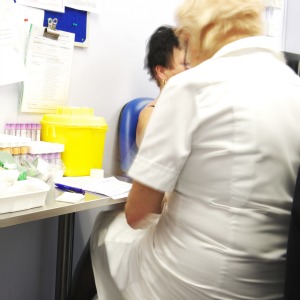CCG in talks over moving to wholly salaried model of general practice

Exclusive A CCG has revealed that it is in talks with GPs about a projected move to a completely salary-based model of primary care in a bid to tackle major recruitment problems in the area, Pulse can reveal.
NHS Hull CCG has met with all 57 of its constituent practices to collect feedback on the types of model that they would like to adopt in future as an alternative to the majority GMS contract arrangements currently in place.
But chief officer Emma Latimer told Pulse that moving to a completely salaried model was the CCG’s ‘ultimate aim’.
The CCG is aiming to use the increased primary care commissioning powers to ‘decide on new models of care’ to implement in 2016-17.
Ms Latimer told Pulse: ‘Moving to a completely salaried model is our ultimate aim, but there’s quite a road to get there. We’re looking to create new models of care on a bigger footprint. We’ve got four or five practices working together, not necessarily federating, but developing new models of care and organisation forms.
‘For 2015-16, the CCG’s focus will be on deciding new models of primary care. We’re looking to work with people in the next 12 months to develop the models, with a view to starting in 2016-17.’
Hull is among the areas worst affected by the national GP recruitment and retention crisis, with just a current ratio of just 43 doctors per 100,000 patients (the national average is 59.5). 30% of Hull’s 57 GP practices are run by singlehanded GPs, many of whom are of or are approaching retirement age.
Earlier this year, the CCG announced a recruitment package offering GPs the chance to go on six-month overseas sabbaticals and be given funding to undertake MBAs in leadership in a bid to tackle the problems.
Under co-commissioning plans, NHS England wants CCGs take on more responsibility for primary care, including tackling recruitment problems.
Hull CCG has already signalled its interest to take on the highest level of primary care commissioning. In an expression of interest document sent to NHS England in June this year and seen by Pulse, the CCG said they wanted delegated responsibility for commissioning PMS, APMS and DESs from April 2015, budget responsibility for premises, and the power to make decisions on new providers and practice mergers.
Related stories
Simon Stevens: ‘We need to do what was previously forbidden’
Ms Latimer told Pulse: ‘Co-commissioning is a vehicle to help us deliver new models of care, without a shadow of a doubt. The more resources we have to work with, the more flexibility we have about how we use that resource. We’re looking to take over the commissioning of the contracts, which will give us the headroom to do this new model of care.
She added: ‘In the future, GPs’ employers could could be a social enterprise, they could be a hospital, they could be a GP consortium or federation or a social enterprise. It won’t be the CCG, because we’re not into provision.’
Ms Latimer acknowledged that such a move would not be universally popular.
She added: ‘We’re not expecting all GPs to want this – there’s a lot of fear around it. Some are frightened of change or are happy with what they’ve got, and you can understand that. Therefore, any alternative has to be attractive enough for people to want to get involved.
‘People don’t think the CCG is here to support them, because they’re so used to PCTs being quite autocratic. But we’re talking to GPs about their estates options. A lot of GPs have bought their buildings and own the asset, so are worried about disposal. We’re talking to them about how they can potentially dispose of that asset, and we’re also talking about the HR implications of staff moving.
‘Many doctors are also used to the GMS contract and the guarantees that gives them. At the moment, the majority of our contracts are GMS but there’s a recognition from some GPs that it’s out of date for how they want to practice.’









